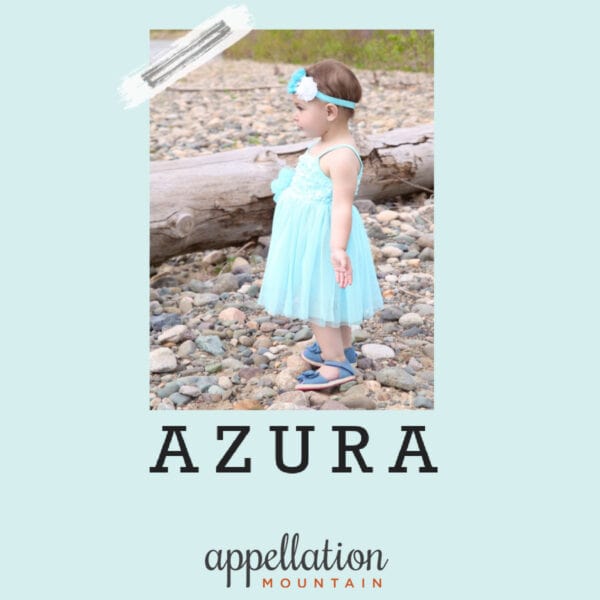
Our Baby Name of the Day comes from Asha, and also appears on this list.
Margot: Marguerite
Everybody knows Margaret. It comes from the Greek word margarites, meaning pearl. It became Margalit and Margarita, and eventually Marguerite in French.
Margot evolved as a short form of Marguerite.
Some say the nickname was invented for Marguerite of Valois, who married King Henry IV of France back in 1572. But the Dictionary of Medieval Names from European Sources records it in use at least a century prior to her 1553 birth.
What we know is that the queen popularized the nickname and ensured it entered the history books.
Margot: La Reine
The French queen was stylish and highly educated. She authored her own memoirs – perhaps the very first work of its kind.
But she was also entangled in the controversies of her day. Her marriage was meant to cement a truce in the Wars of Religion. Instead, rumors and scandals plagued their relationship, and they often found each other on opposite sides.
Margueriten makes for a complex, intelligent, and capable figure, but we tend to remember her in a negative light. La Reine Margot, written by Alexandre Dumas, père, is the longest lasting of the many tales told about the queen, and it’s unflattering.
Margot: Fonteyn
Despite that less-than-stellar historical reference, the name remained in use, in France and elsewhere.
Legendary English ballerina Dame Margot Fonteyn was born in 1919. She initially adopted the stage name Margaret, but the prima ballerina of the Royal Ballet is remembered to us by her birth name. She was wildly famous in the 1950s; and then Rudolf Nureyev defected from the Kirov Ballet. Despite a nearly twenty-year age gap, the pair danced together in Giselle in 1962, and became an even bigger international sensation.
And yet, Fonteyn doesn’t get credit for popularizing the name. Instead, it peaked in the 1930s, barely grazing the US Top 500.
Margot: T or no T
The silent T causes some consternation.
In French, it’s ordinary. Think of escargot or haricot. But in English? Not so much.
In 1950, Bette Davis starred as Margo in All About Eve; Grace Kelly played a character by the name in 1954’s thriller Dial M for Murder, only this time spelled with a t.
It was the era of Fonteyn’s stardom, and yet neither spelling cracked the Top 250. The highest either spelling reached was #295 in 1951.
O-ending girl names can be found on the fringes over the years. Besides Margo, there’s also Cleo. But -ot ending names? This might be the only one.
Margot: Tenenbaum
Maybe it’s that distinctive spelling that makes the name feel quirky. It reads as creative and sophisticated, high-spirited and maybe a little edgy, while remaining traditionalish.
It’s the perfect choice for Gwyneth Paltrow’s character in The Royal Tenenbaums. All of the characters are accomplished, but eccentric.
When the 2001 movie came out, Margot was at the height of popularity in France, but hadn’t cracked the US rankings since the 1960s. There’s a tiny uptick in the name’s use around 2001/2002, but Tenenbaum wasn’t enough to take this one mainstream.
Margot: Countess to Robbie
Other notable figures by the name include:
- The Countess of Oxford and Asquith, wife of the British Prime Minister in the 1910s.
- Anne Frank’s older sister.
- Model-actor Margaux Hemingway was born Margot Louise, but changed the spelling to reflect Château Margaux, the wine that inspired her name.
- Actor Kidder, best known as Lois Lane in the 1978 version of Superman.
- Margot Robbie, known for her performances in everything from Suicide Squad to I, Tanya, for which she received an Oscar nomination.
The name appears in Evelyn Waugh’s 1928 novel Decline and Fall; Nicole Kidman played the title character in 2007’s Margot at the Wedding.
Robbie might deserve credit for the name’s recent rise – and our tendency to use the -t spelling.
Margot: 100-Year Rule
But here’s my best guess: the name owes its recent revival to the good ol’ 100-year rule.
In brief, it typically takes about a century for a name to peak in use, fall out of favor, and then be re-discovered anew.
The o-ending helps, as does the name’s nickname-proof style and vaguely French sensibility. It feels classic, but creative; traditional, but still daring.
It’s more popular than ever today, a stylish possibility for parents seeking a fresh and modern name with history galore.
Would you give this name to a daughter? What’s your favorite form of Margaret?
First published June 12, 2013, this post was revised substantially and re-posted on October 23, 2018.




I went to high school with a Barbara, called Barbie, and I graduated in 1999!
Curious to see if the Barbie movie with Margot Robbie released July 2023 will create a mini-bump for Margot.
Yes, wondering the same thing! Though I think Robbie has been helping push her name up for a while now … The bigger question in my brain is … could Barbie EVER make a comeback? Barbara?
We have a Margaret called Margot! We love the name. It’s “fresh” (as in not popular) but also feels classic), an homage to my FIL’s French family/last name, and gives our daughter naming options as she grows older! Only problem now is what to name her baby sister due to arrive in a couple months!!!
Don’t forget the beautiful Margot Robbie!
Highly considering Margo for our second daughter. We have a Dianna Rachel and Margo just seems to go right along with the classical, elegance of Dianna. Her name would most likely be Margo Lanell or Margo Beatrice. Still undecided on the middle name.